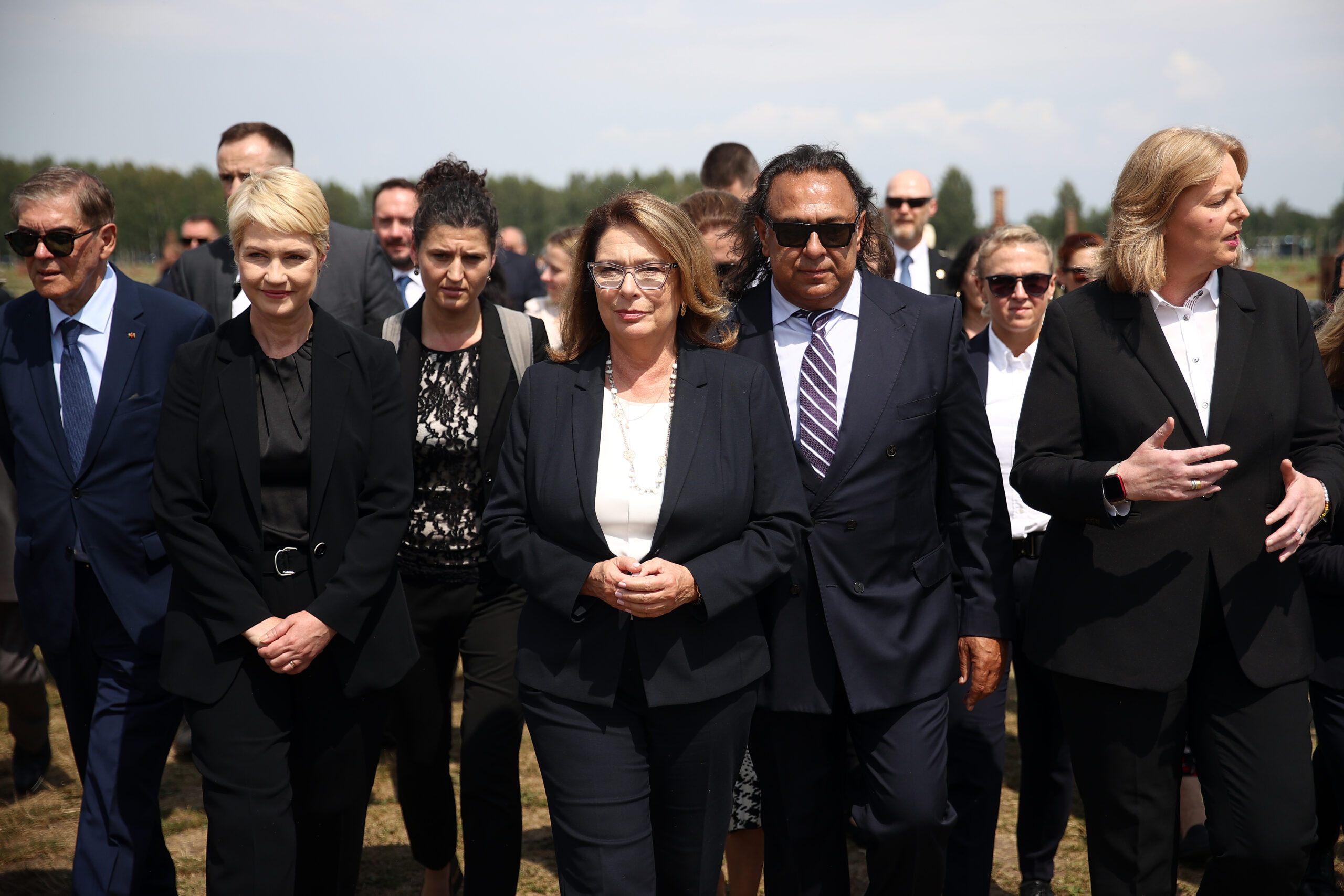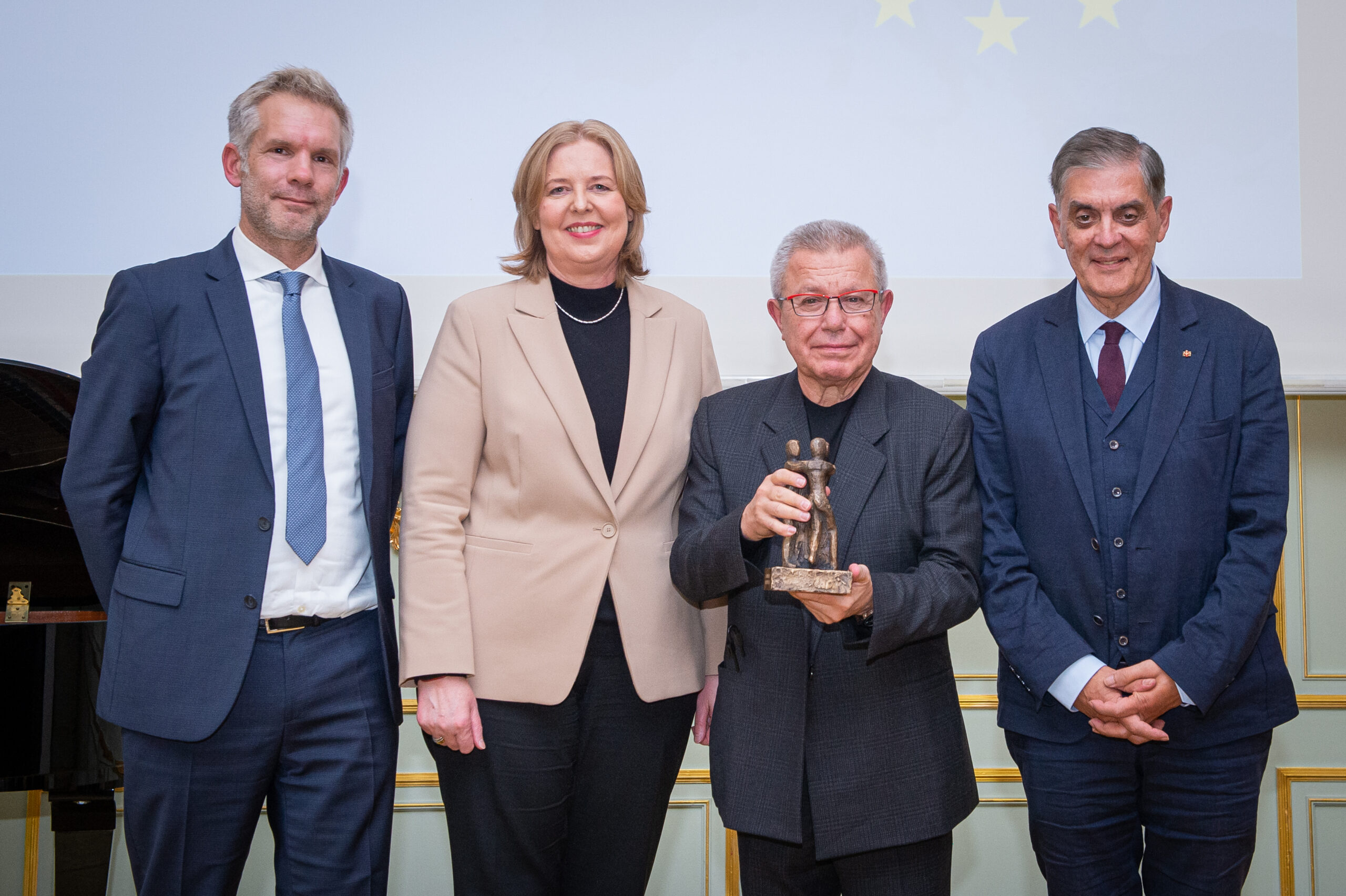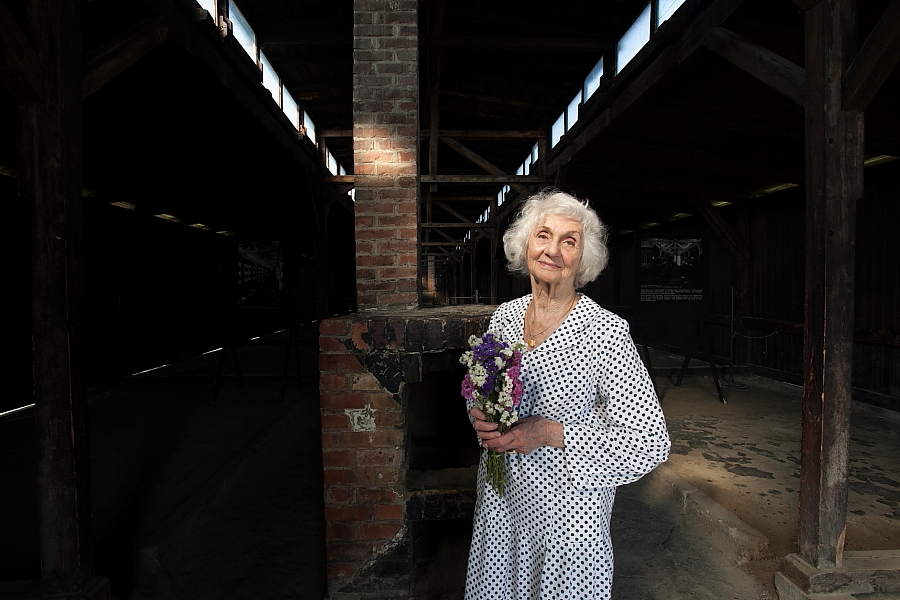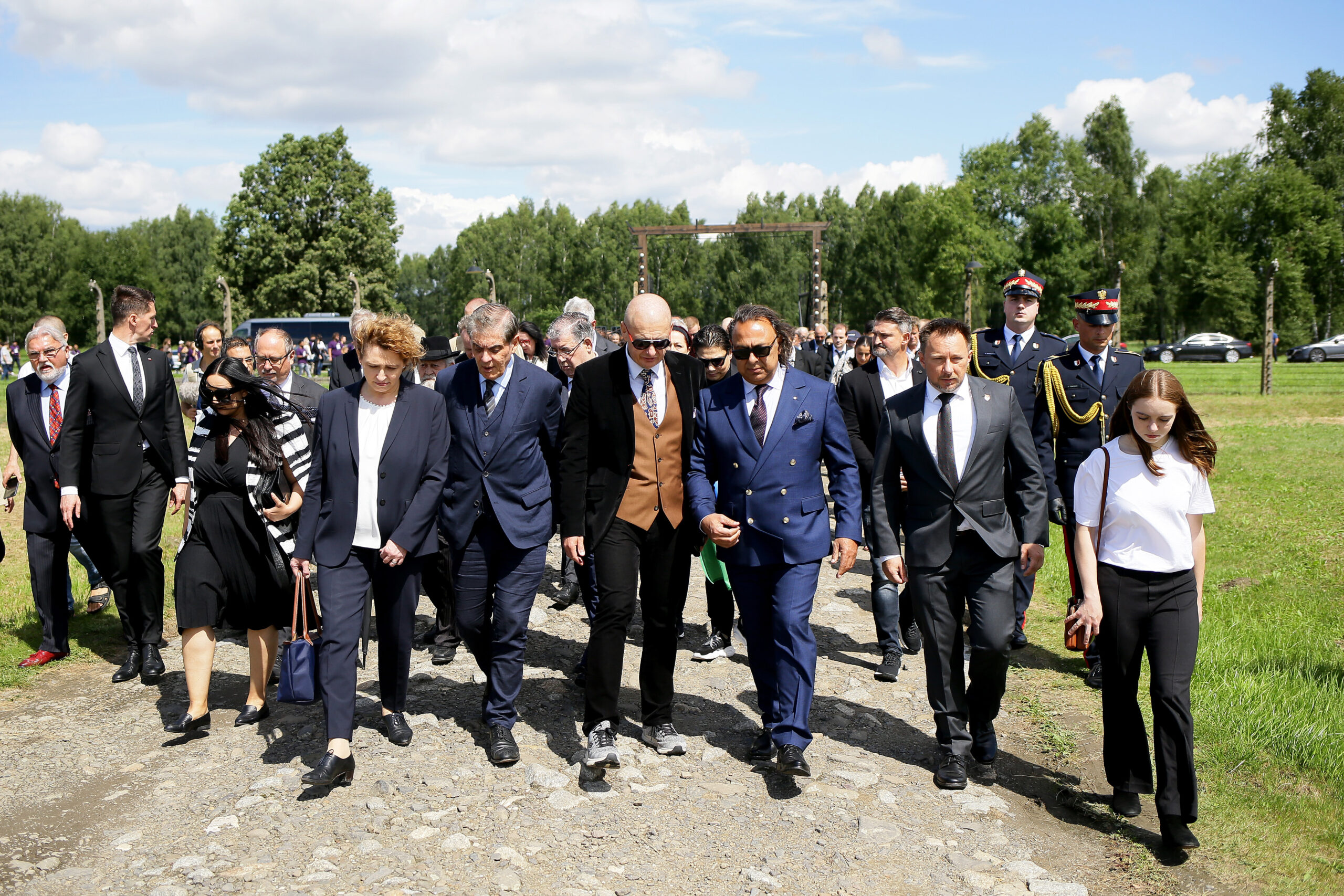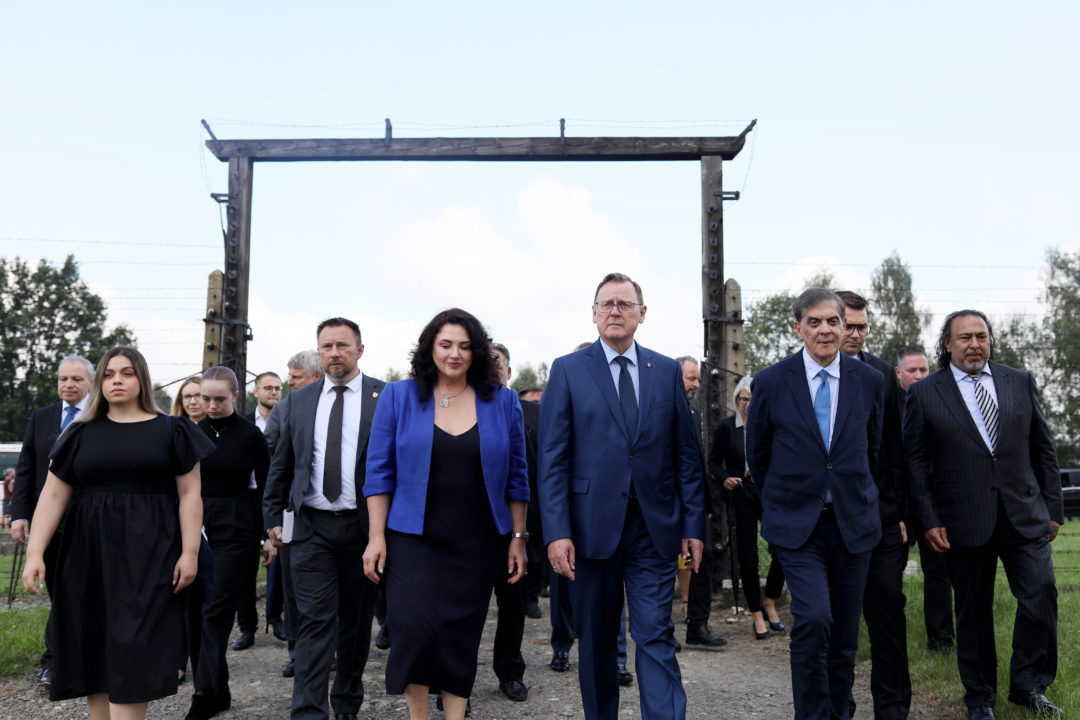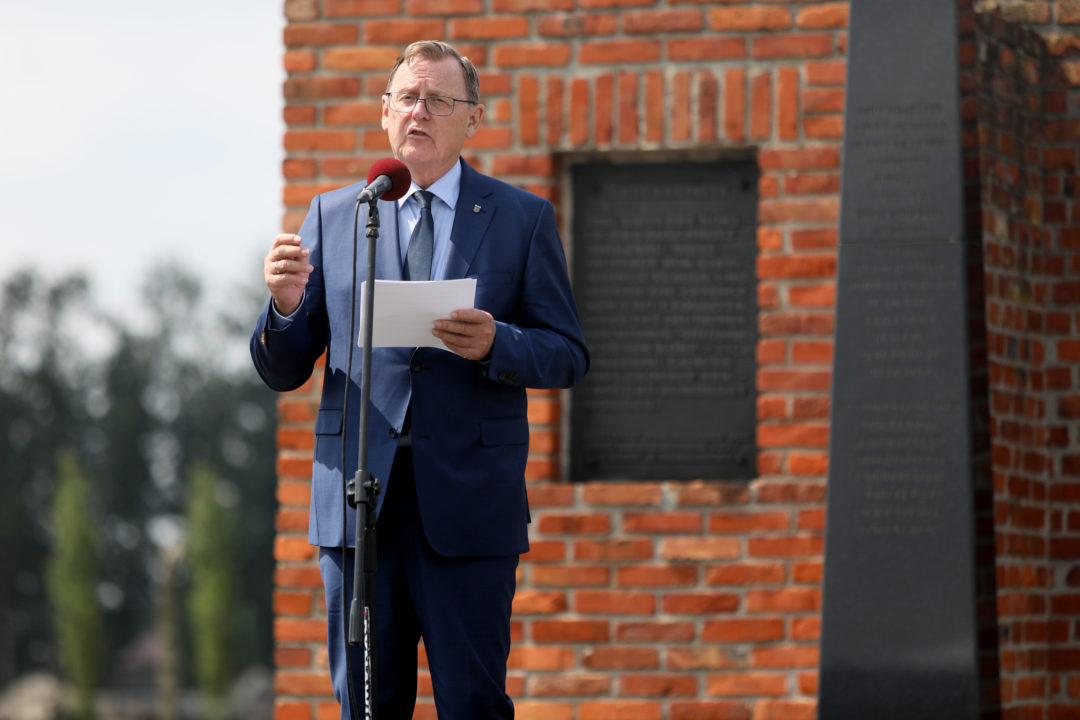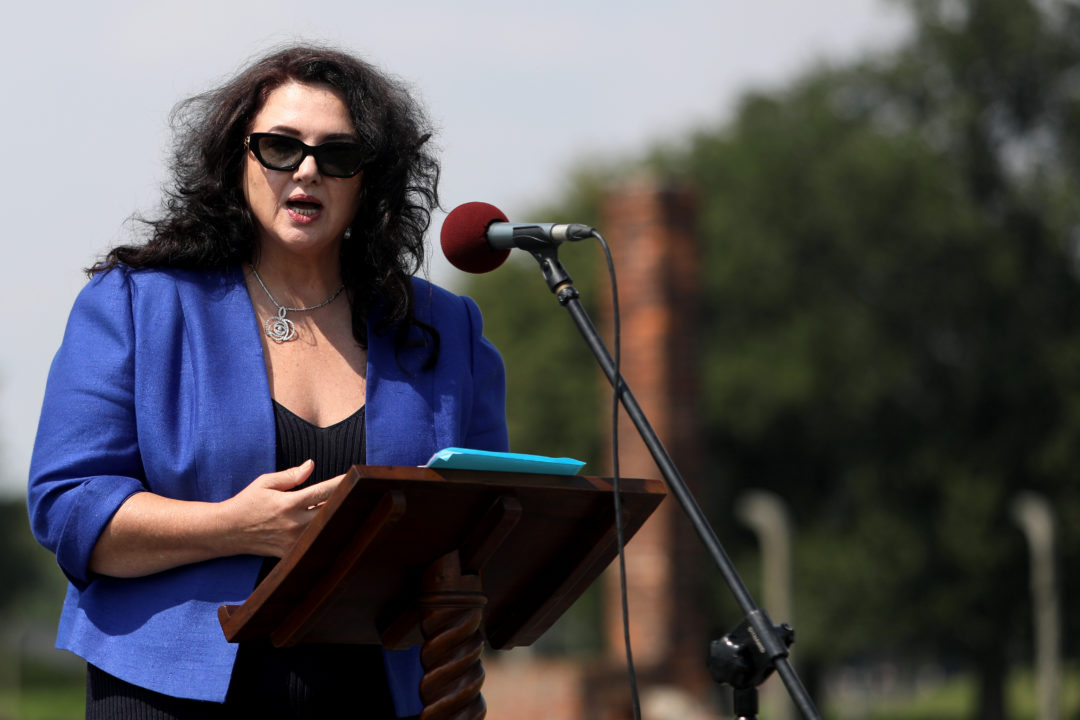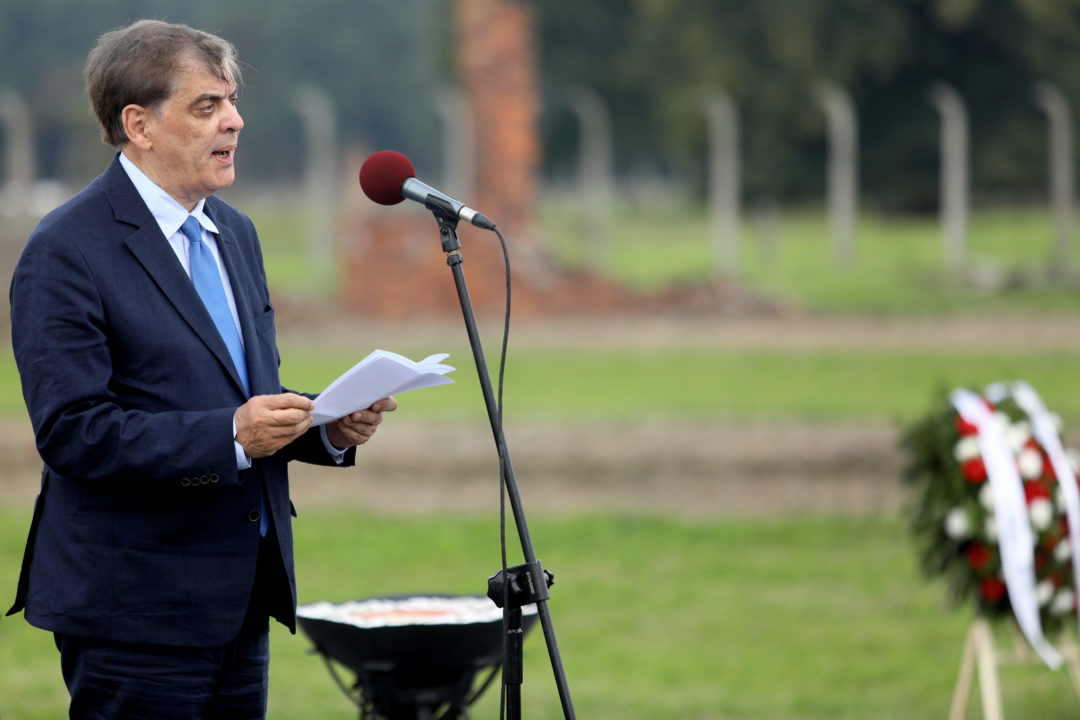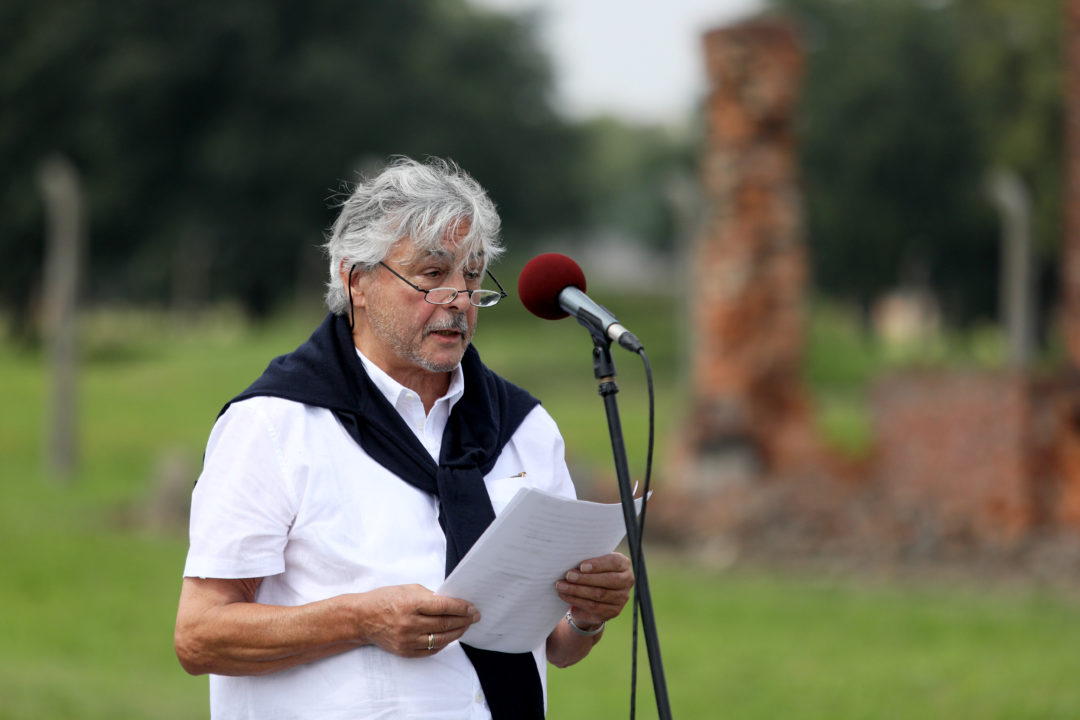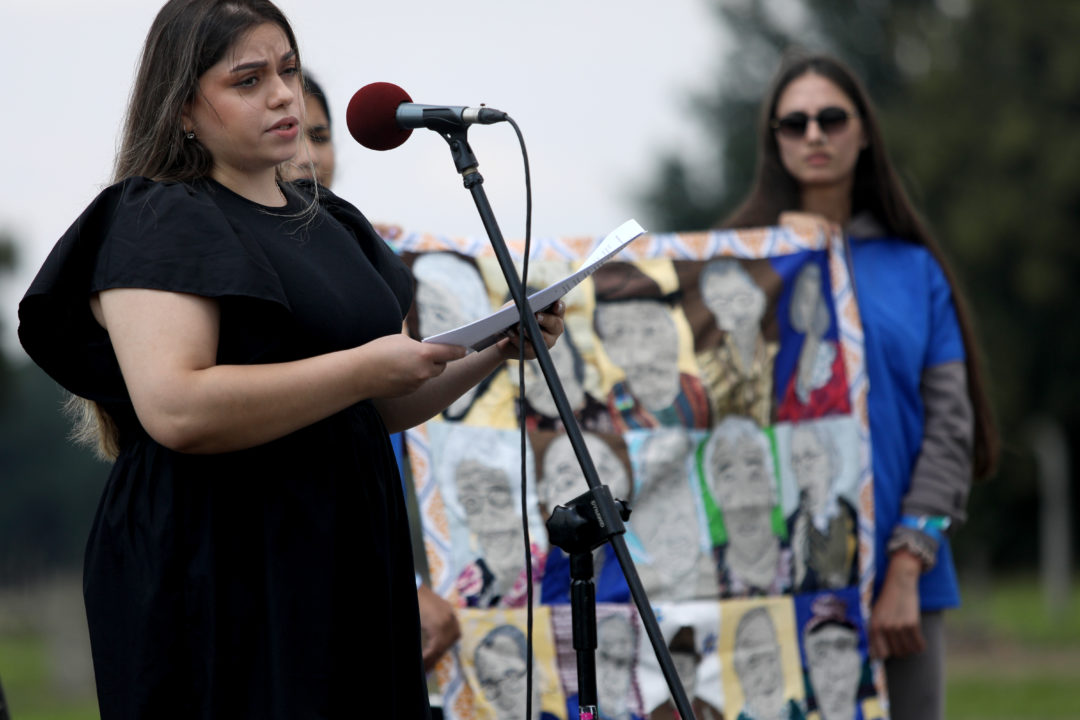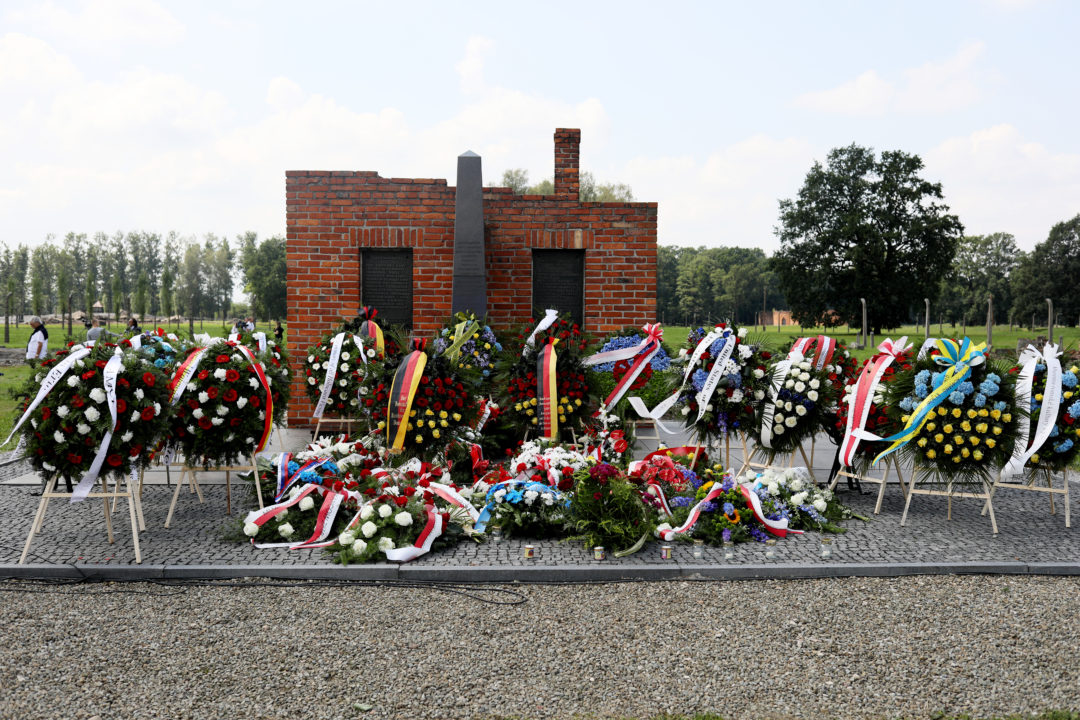President of the Federal Council of Germany Bodo Ramelow commemorates the Holocaust against the Sinti and Roma in Auschwitz and admonishes the “unspoken apartheid” that still affects many members of the minority in parts of Europe today.
At the invitation of the Central Council of German Sinti and Roma, the Prime Minister of Thuringia, Bodo Ramelow, was the first German President of the Federal Council to speak at the European Holocaust Memorial Day for Sinti and Roma at the Auschwitz-Birkenau memorial and to commemorate the 500,000 murdered Sinti and Roma in Nazi-occupied Europe. In addition to Bodo Ramelow, speakers included Christian Pfeil on behalf of Holocaust survivors, Romani Rose, Chairman of the Central Council of German Sinti and Roma, Roman Kwiatkowski, President of the Polish Roma Association, Helena Dalli, EU Commissioner for Equality, and Nataliia Tomenko from Ukraine on behalf of the TernYpe youth network.
In his speech at the memorial to the murdered Sinti and Roma on the site of the former Auschwitz-Birkenau extermination camp, Federal Council President Bodo Ramelow said:
“We are here today to look the horror in the face and thereby make it visible. We are here to pay tribute to the victims together and to mourn them. And we are here to keep the memory alive with the survivors and the family members born after them.”
In his speech, he also conveyed the greetings of the Federal President Frank-Walter Steinmeier, whom he is officially representing this month, and said to the Chairman of the Central Council of German Sinti and Roma:et:
“Therefore, dear Romani Rose, you and the people of your minority do not commemorate alone today. Germany commemorates with you!”
At the same time, he also recalled the inhumane circumstances under which many Sinti and Roma still have to live in parts of Europe today:
“The Roma are Europe’s largest ethnic minority. And yet in many places they are once again marginalised in a kind of unspoken apartheid. They experience hatred, exclusion, racism, violence and the denial of civil and social rights in many countries.”
With regard to the EU’s accession negotiations with Ukraine, he warned that special attention must be paid to how all parties involved would treat the Roma and other minorities during the war against Ukraine, because the war must not be used as an excuse to expel the Roma from Ukraine:
“There cannot and must not be a Europe without equal rights for the Roma. That’s why I think that the way Sinti and Roma are treated, the way minorities are treated in general, is an important criterion for admitting new countries to the EU.”
In her speech, EU Commissioner Helena Dalli also pointed to the worrying situation of people fleeing Ukraine from the Russian war of aggression, among them many Roma:iele Roma:
“Russian aggression towards Ukraine has led to an unprecedented number of refugees, the likes of which we have not seen since the Second World War, fleeing the war, including countless Roma. The EU is determined to welcome all people fleeing the war in Ukraine, regardless of their nationality, ethnicity or skin colour. I have specifically asked all EU Member States to ensure that all Roma refugees are received on their territory and that the needs of the different groups are taken into account in an intersectional approach that takes into account their specific needs.“
takes into account their specific needs.
Romani Rose, Chairman of the Central Council of German Sinti and Roma, warned that the achievements of an open democratic society, which have long been taken for granted, are currently increasingly being called into question by divisive agitation against minorities and that anti-Semitism and antiziganism are once again leading to people being threatened with their lives, especially in the countries of South-Eastern and Central Europe, where many Roma are forced to live in inhumane and apartheid-like structures:
“If now the Hungarian President Orban, whose country is a member state of the European Union, again lectures about race and ethnic purity and uses a vocabulary reminiscent of the darkest times of European history, then this is another attempt at division, which on the one hand is fire-threatening for peace in our society, our community and our European values. We as Europeans must stand united against such attempts at division and not allow such inflammatory statements to go unchallenged.”
The president of the Association of Roma in Poland, Roman Kwiatkowski, demands from society:
“We don’t want privileges. We want equal rights and obligations towards the society we belong to. Where we need support and help, our rights must be protected just as the state should protect the rights of all citizens.”
Holocaust survivor Christian Pfeil from Trier addressed the young generation in particular:
“To all the young people who are here today, I would like to leave you with one thing: There are always crazy, obsessed and fanatical people who despise other people. Who persecute or even kill other people because of their skin colour, nationality or because they belong to a minority. Racist tendencies exist all over Europe today. That is why courage is needed. That’s why you need to stand up for democracy and strongly oppose antigypsyism, anti-Semitism and racism.”
Nataliia Tomenko from Ukraine spoke on behalf of the youth network TernYpe as a representative of the third generation. She also warned with regard to the current events in Ukraine:
“We all know that it can happen today in Ukraine, tomorrow outside Ukraine. I will not stop opposing this war and raising my voice until it ends and we all receive reparations and justice in an independent international court. We do not need mercy from Europe, we need your decisions, your actions and your solidarity. I encourage all young Sinti and Roma, who are the main force of the movement of today and tomorrow, to stand up and speak out in all European countries, to resist and remember the lessons of the past!”
Virtual commemoration
We will continue to hold the now established form of a virtual commemoration for the 500,000 murdered Sinti and Roma in Nazi-occupied Europe. The event will be available on 3 August and in the days thereafter via the website https://www.roma-sinti-holocaust-memorial-day.eu/ together with a wide range of information (DE/EN/PL/Romanes) on the topic.
